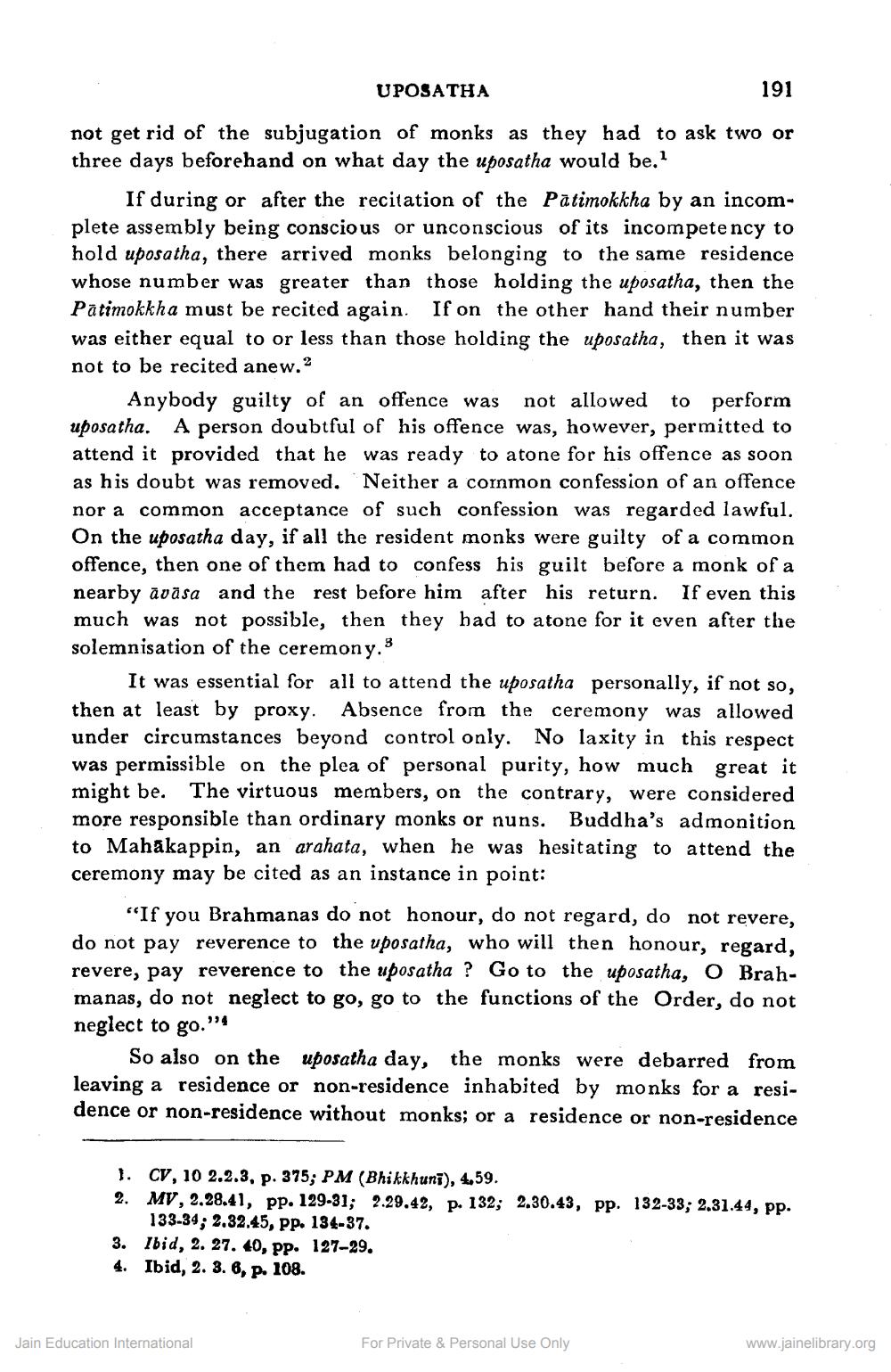________________
191 not get rid of the subjugation of monks as they had to ask two or three days beforehand on what day the uposatha would be.1
If during or after the recitation of the Patimokkha by an incomplete assembly being conscious or unconscious of its incompetency to hold uposatha, there arrived monks belonging to the same residence whose number was greater than those holding the uposatha, then the Patimokkha must be recited again. If on the other hand their number was either equal to or less than those holding the uposatha, then it was not to be recited anew.2
Anybody guilty of an offence was not allowed to perform uposatha. A person doubtful of his offence was, however, permitted to attend it provided that he was ready to atone for his offence as soon as his doubt was removed. Neither a common confession of an offence nor a common acceptance of such confession was regarded lawful. On the uposatha day, if all the resident monks were guilty of a common offence, then one of them had to confess his guilt before a monk of a nearby āvāsa and the rest before him after his return. If even this much was not possible, then they had to atone for it even after the solemnisation of the ceremony.3
UPOSATHA
It was essential for all to attend the uposatha personally, if not so, then at least by proxy. Absence from the ceremony was allowed under circumstances beyond control only. No laxity in this respect was permissible on the plea of personal purity, how much great it might be. The virtuous members, on the contrary, were considered more responsible than ordinary monks or nuns. Buddha's admonition to Mahākappin, an arahata, when he was hesitating to attend the ceremony may be cited as an instance in point:
"If
you Brahmanas do not honour, do not regard, do not revere, do not pay reverence to the uposatha, who will then honour, regard, revere, pay reverence to the uposatha? Go to the uposatha, O Brahmanas, do not neglect to go, go to the functions of the Order, do not neglect to go.""4
So also on the uposatha day, the monks were debarred from leaving a residence or non-residence inhabited by monks for a residence or non-residence without monks; or a residence or non-residence
1. CV, 10 2.2.3, p. 375; PM (Bhikkhunī), 4.59.
2. MV, 2.28.41, pp. 129-31; 2.29.42, p. 132; 2.30.43, pp. 132-33; 2.31.44, pp. 133-34; 2.32.45, pp. 134-37.
Ibid, 2. 27. 40, pp. 127-29.
3.
4. Ibid, 2. 3. 6, p. 108.
Jain Education International
For Private & Personal Use Only
www.jainelibrary.org




